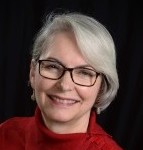 “Money and power.” That’s what the gentleman who telephoned me from Mississippi said. The pressure on his home state and on my home state of North Carolina for recent legislative and gubernatorial actions, viewed widely as discriminatory, are all about money and power, he said.
“Money and power.” That’s what the gentleman who telephoned me from Mississippi said. The pressure on his home state and on my home state of North Carolina for recent legislative and gubernatorial actions, viewed widely as discriminatory, are all about money and power, he said.
I assured the gentleman — and he was — that he was completely wrong. At least he was wrong about my response and the Alliance of Baptists’ response.
His charge, though, I heard echoed in a radio interview on our local PBS station. The woman speaking for a traditional values coalition stated that money and power have motivated artists and companies to withdraw business from the Tar Heel state if House Bill 2 is not overturned.
At the end of April, the local paper reported the loss of more than $2 million in tourist revenues because of the legislation that targeted a Charlotte city ordinance for gender-neutral public bathrooms and nullified local anti-discrimination and wage laws.
These comments about money and power — and my immediate denial — have continued to stir within me. Is it about power? Am I, and others like me, motivated because of power when speaking concern about HB2 and its impact? Are companies and artists being coercive and manipulative? If one uses the money and power they have for cultivating justice-love, is it manipulative?
Having been affected by the abuse of power as a female and as a Baptist, I’ve always been reluctant to claim power or use power. In an effort to counterbalance the destructive “power-over” system out of which we emerged, the Alliance of Baptists adopted a non-hierarchical staff model. That “power-with” model, adopted in the early 2000s, has continued to evolve as we have learned of the importance of partnership and leadership empowerment.
I’m learning to view power as a gift — a gift that we can use creatively to call forth human flourishing. I’m learning from Andy Crouch’s book, Playing God, that we are surrounded by power, and that those who have unlimited access to power are the ones who are less likely to think about their power and the use of their power, until it suddenly becomes diminished.
I’m learning how a group or even one person often uses power to deprive another of power. The most flagrant abuse of power in U.S. history has been the enslavement of an entire race of people through which some are still becoming richer and more powerful. I’m learning that those who view power as a limited commodity must wrest power from another in order to acquire more for themselves.
Powerlessness to make sense out of your world debilitates the most resilient among us. Undocumented immigrants are among the most powerless and vulnerable groups in our nation today. And the list goes on to include all people of color, those living in poverty, the incarcerated, the LGBTQ community, Palestinians living in disputed territories, women and children, and the many living creatures that inhabit the earth.
Andy Crouch in Playing God writes, “When power is used well, people and the whole cosmos come more alive to what they were meant to be.” When power is used well, systemic change occurs, and there is healing and wholeness.
The next time someone calls me and talks to me about power, I’ll not hesitate. I’ll respond that I’m exercising the power that is mine as a white clergywoman with privilege to speak for those without power.
In my speaking and in my actions, it is my prayer that wholeness and healing emerge — a healing and wholeness that is not possible through Supreme Court decrees, but one that is grounded in a cosmic, holy justice saturated in loving-kindness — a mark of God’s imprint on our lives.
